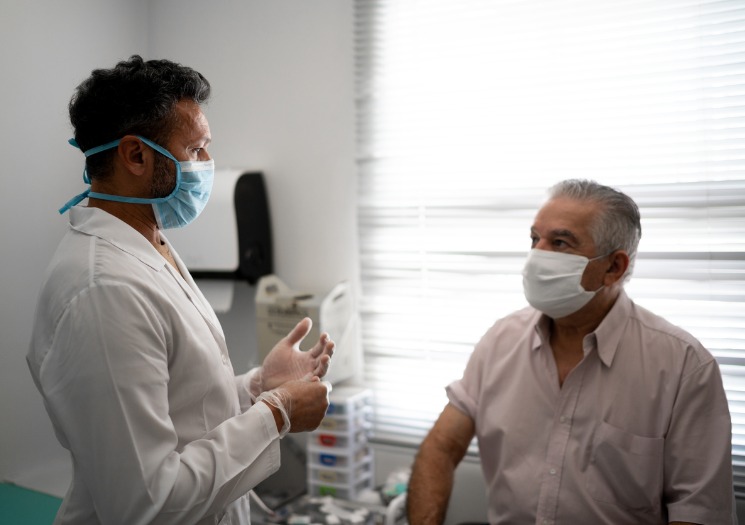- Find a Provider
-
Services
-
Redeemer Health provides compassionate care across every stage of life.
- View all Services
- Health Care
- Cancer Care
- Heart Care
- Hospital at Home
- Maternity Care
- Infusion Therapy Center
- More Health Care Services
-
- Patients & Visitors
- Locations
- Careers
Flu Season Is Coming - Be Prepared
October 25, 2021
categories:

The best way to prevent seasonal flu is to get vaccinated each year, but good health habits can help stop the spread of germs and prevent respiratory illnesses like the flu.
Reduce Your Exposure
We have all become very comfortable with the precautions put in place because of the COVID virus and these same steps can limit our exposure to the flu.
- Wash your hands often with soap and water, or use an alcohol-based hand sanitizer.
- Cough or sneeze into a tissue, then throw the tissue away.
- Don’t touch your eyes, nose, or mouth after washing your hands.
- Keep a physical distance of six feet.
- Try to stay away from sick people.
- Wear a face mask indoors.
Get a Flu Vaccination
The flu vaccine is easily accessible and, should you catch the flu, can help reduce the severity. Studies show that when people receive the vaccine the need to go to the doctor because of flu is reduced by half and visits to the hospital’s intensive care unit are reduced by more than 80%. Building up immunity takes up to two weeks to develop after vaccination, so it’s best to get your flu shot as soon as possible.
"The vaccine is especially important for people 65 and older, as they have a higher risk of developing serious complications from the flu and should get the vaccine," says Dr. Merlyn S. Manattu, a primary care physician at Redeemer Health Family Medicine - Bensalem. "Everyone should get a flu shot, but it is more important for people who have chronic medical conditions since the flu can cause serious complications that could lead to hospitalization and sometimes, even death."
The Flu and COVID
Both illnesses can present with fever, headache, cough, sore throat, muscle aches, and fatigue. Fortunately, doctors can simultaneously test for COVID-19, flu, and even RSV, a common virus that infects the respiratory tract, to quickly discern a diagnosis and begin a treatment plan. "You can catch COVID-19 and the flu at the same time. And the impact could be more severe, resulting in great strain on your respiratory system," says Dr. Manattu. "The best line of defense is to get the flu vaccine to help protect yourself and others around you.
If Illness Should Occur
If you have flu-like symptoms drink plenty of fluids, take over-the-counter medications to relieve fever, aches, pains, congestion, and coughing, and stay home and rest until your fever has been gone for at least 24 hours.
People at high risk of complications from a virus, including young children, adults 65 years of age and older, pregnant women, and people with certain medical conditions, should contact their doctor as soon as they begin to have flu symptoms. For others, you should see your doctor if your flu symptoms are not improving with over-the-counter treatments. Seek emergency care if you have a fever over 102 degrees, persistent vomiting, shortness of breath or difficulty breathing, or very swollen glands in your neck or jaw.
If you have not scheduled your flu vaccine yet, contact your primary care physician. If you have received your flu shot from another location, let your primary care team know to add it to your medical records. If you need a primary care physician referral, contact the Redeemer Health Information line at 1-800-818-4747.



